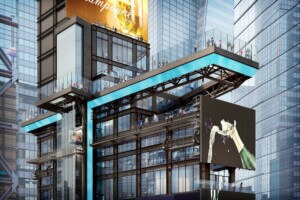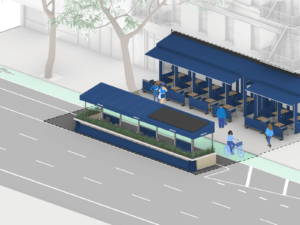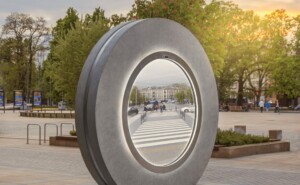The Architecture Lobby NYC Chapter and downtown Manhattan activism group Art Against Displacement (AAD) are calling on New York-based architects and designers (and stakeholders) to take a stand against inequitable development. The Architecture Lobby is no stranger to advocating for more sustainable practices in design, having backed the Green New Deal in 2019, and last week they and AAD released a petition asking for designers, writers, developers, and everyone else to advocate for more sustainable and fair design in New York City.
A lack of truly affordable housing, unbridled development and gentrification, land speculation, and prioritizing aesthetics over helping people all fall in the letter’s crosshairs.
At the time of writing, the list of signatories is still growing; if you’re interested in signing, the original document can be found here. Below is the full text, sans signatures:
We, your fellow professionals and public community members, are calling on you to collectively stand against all racist, classist and anti-sustainable development projects in New York City.
Over the last thirty years, New York City has seen a dramatic rise in private luxury residential and commercial construction that has prioritized developer profits and design over the possibility of a more affordable and diverse city. The result has not only proliferated dehumanizing displacement and gentrification, but has also created an unhealthy and ominous built environment. With each developer-driven project, the city loses its aesthetic vibrancy and, more importantly, its affordability—pushing out black, brown, and indigenous communities, precarious workers, and artists, who author the unique cultures and environments that developers prize and capitalize on.
Now, with an unpredictable pandemic, a depressed economy, and still-unaffordable rents, as well as an approaching eviction crisis, our city is even more vulnerable to exploitative profiteers. It is time that we take a stand. The architecture and design communities should not submit to a culture—and its aesthetic prerogatives—that profits off speculation on peoples’ homes and public land. Instead, architecture should truly embody equitable values as a humanizing and sustainable force in the built environment. Spaces should be useful to tenants, pedestrians, and workers instead of hiding behind the myths of city officials, like that of “affordable units,” which are rarely affordable and always far too few.
We realize that the agency of designers is limited because of the abusive economic structures that dictate the architectural professions, but this letter aims to decenter that narrative and refocus on the prevailing needs of justice. Designers must work collectively to cease their complicity with dispossession– for the sake of our vulnerable communities and the climate crisis; against larger systemic injustices reproduced by the built environment; for the future of human health, welfare, and equity; and for the value and aesthetics of architecture. It’s time to join forces to demand that elected officials and candidates seeking office will reign in the unbridled greed of the real estate lobby and fight for housing as a human right; fight for commercial spaces as local businesses; and fight for open spaces as truly public and welcoming to all.
We ask that in signing this letter you begin to unashamedly admit and condemn the current structures of development in New York City and protest the corrupted behavior and policy that tortures our city’s neighborhoods and tenants.
We call on the design community to:
- Condemn inequitable developments that cause the displacement of long-term residents and small businesses
- Make a concerted effort to reject further work that promotes inequitable development
- Advocate for policy changes that intervene in the current system of land use and help to instigate a process of deep and reparative equity in urban development. For example:
- Banning government subsidies to private developments
- Supporting and facilitating community-driven ownership models, such as Community Land Trusts (CLTs)
- Budgeting for public spaces
- Campaigning for tenant rights
- Stand with activists who demand politicians overhaul the assumed “community engagement” process and instate laws that ensure the public’s voice is legitimized. “Nothing About Us Without Us.”
Click Here to Sign the Letter.
Your name may not appear immediately but will within 24 hours.











